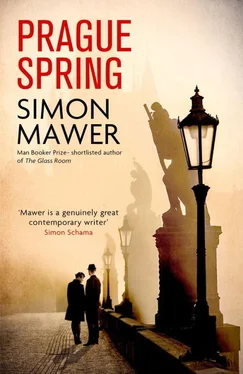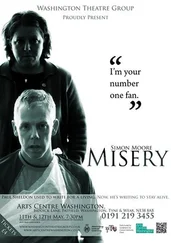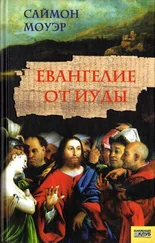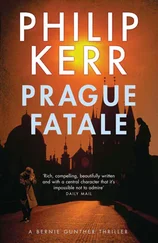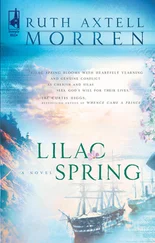Simon Mawer
PRAGUE SPRING
For Sophia and Olivia,
two more of the next generation
It started in a pub. Not unusual for a journey. Phileas Fogg started his at the Reform Club in London, but then James Borthwick was not Phileas Fogg, and this pub was the nearest thing to a club that James knew. And this journey wasn’t round the world, which these days you can probably do in less than eighty hours and never leave aircraft or airport. So, a pub, a student pub full of noise and laughter and spilt beer, with photographs of rowing eights on the walls and signatures of oarsmen and rugby players on the ceiling and even an oar hanging over the bar. Yes, one of those pubs that anxious tourists enter during the vacations in the vain hope that they are going to witness that ephemeral will-o’-the-wisp student life, when all they find is indifferent bar staff, flabby beer and flabbier meat pies.
‘Do you really think it makes any sense at all?’ James asked, feeling, for a moment, emboldened. He was sitting at a small, round table, opposite a rather ragged-looking girl, leaning towards her across the table so that they could catch each other’s words amidst the noise. James was feeling nervous because it wasn’t every day that he got this close to someone like Eleanor and he didn’t want to be wafting beery breath all over her in case that should blow her away. Also because, let’s face it, they came from opposite ends of the undergraduate spectrum. She was reading English while he was a scientist of a kind, and she was in her second year whereas he was a fresher. Furthermore – there’s more, we’re going further, into the murky world of class – furthermore, and despite her scruffy appearance, there was something decidedly superior about Eleanor that was noticeable when she spoke, a certain manner of enunciating her consonants, hitting the Ts and Ls and sculpting the vowels, that put her in a social class above James. His voice was vaguely Northern; hers was county. It doesn’t really matter which county. Perhaps even Oxford, although the Oxford voice, with its hooing and its cooing, was really a thing of the past. But the most decided difference between them was not accent or even social class but the plain biological fact that he was male and therefore one of many thousands, whereas she was female and therefore, within the university, as rare as a nun in a monastery. Perhaps that’s a surprise, considering that nowadays women outnumber men by the fraction that superior intelligence and unwavering work habits give them, but in those days it was so: lots of men, few women. Furthermore, those two contrasting versions of the species lived very separate lives for the simple, administrative, historical, insane reason that the colleges were still single-sex. Thus Eleanor belonged to St Hilda’s, all the way down the High and over the river. Turn right, away from the medieval glories of Magdalen, and you’ll find the rather lesser nineteenth-and twentieth-century glories of St Hilda’s college just there. No tourist bothers, ever. Whereas James lived in the Renaissance glory of one of the old colleges in the city centre, where tourists bother all the time.
Coming from such different worlds, they might have drifted past each other without even passing the time of day had it not been for one of those chance events of university life: they were acting together in a college play.
‘Of course it doesn’t make sense in the way you mean ,’ Eleanor replied, leaving James to wonder which way he did mean and, furthermore, what kind of sense it might make in any other way. Thus instead of reducing his uncertainty, Eleanor had actually succeeded in increasing it. Typical of an arts undergraduate. The subject in question was the play that had brought them together both at a series of rather awkward rehearsals in rooms in college and more immediately on a stage in a hall somewhere in Walton Street, she as a female cripple in an old-fashioned pram and he as the witless male condemned to push pram and female around the rather limited universe of the playwright’s imagination. This unlikely duo was searching, so the storyline went, for the city of Tar. Although why they should wish to get to Tar was never made clear. Sub-Beckett, James wanted to say of the play, but lines like that were dangerous when you were talking to someone who was reading English, especially when you were reading science.
‘I suppose not,’ was what he replied, which appeared to cover all possible lines of attack. ‘Do you want another beer?’
‘I haven’t finished this one.’
‘No.’
She was smoking. James didn’t smoke because he didn’t like it, but she smoked, rolled her own, in fact, because… what? She did like it? Or did she feel that rolling her own made her seem closer to the working class whose virtues she extolled? He wondered other things – did she smoke pot, perhaps? That was the term in those days. Pot, hash, grass, weed. Shit, if you were feeling very edgy. Probably others that he didn’t know. Anyway, did she? And another, much more disturbing question: did her mouth taste of cigarettes? Disturbing because her mouth was itself disturbing. Full, with a slightly heavy upper lip. And very red. Somehow not exactly English. And he knew – for a fleeting moment as he tried to think what else to say – that he would love to kiss it, cigarettes or no cigarettes.
‘So what exactly are they searching for? Fando and Lis, I mean.’
‘They aren’t exactly searching for anything.’
‘Of course not. So what are they approximately searching for?’
That made her laugh. It was lovely, that laugh. Despite the cigarettes, her teeth were very white and the inside of her mouth coral pink. In contrast her skin was quite pale, and her hair – a curly cloud – straw-coloured. He would never have admitted it to anyone, but just being there at the table with her, watching her laugh, brought the beginnings of an awkward erection.
‘You’re so funny,’ she said, which, laughter being the great aphrodisiac, made the erection worse.
‘I suppose for fulfilment,’ James suggested.
‘What on earth do you mean, fulfilment ? That’s a weasel word if there ever was one. I thought you scientists were meant to be precise.’
‘Well…’ he hesitated. ‘Love, perhaps.’
‘God, you’ll be calling them hippies next.’
‘Or maybe they’re just looking for a youth hostel.’
It was then, following a further little bout of laughter, that she asked, quite casually, apropos of nothing (as she might have said), the question: What are you doing in the long vac?
Vac. Inwardly James cringed. He hated terms like this. Rugger and cuppers and scouts and other stuff. Soccer as well. And he hated the prospect of long vac for what it was, a desert of nothing to do that stretched aimlessly from Trinity to Michaelmas and was both a purgatory and a wasted opportunity. Trinity and Michaelmas. More of those bloody terms. Terms for terms in this case, Trinity being spring term and Michaelmas being autumn. I mean, what did they mean , for Christ’s sake? Trinity, an atom-bomb test. And Michaelmas, a daisy. ‘I dunno, really,’ he answered her, wishing he had something more impressive to say. ‘Got to get a job, I suppose, but what I really want to do is travel. I had thought of going to Europe. Hitching. But…’
‘But what?’
‘I was going with a mate but he’s had to cry off. So…’ He hesitated, not wanting to go into too much detail. It wouldn’t sound cool, two guys going round battlefields. Because that’s what it was. A friend from home, like him an enthusiastic war-gamer. Not something to admit to freely. Like trainspotting or stamp collecting, it seemed a silly, childish interest. Board games and that. Ludo, Cluedo, Monopoly, all the crappy amusements of childhood. Except that it wasn’t the same, really. It was an attempt to reconstruct the past, to relive it and learn from it. But to explain all that to Eleanor would have just made things worse – she’d have looked at him with that knowing look and made him feel foolish and naive. Better just keep quiet.
Читать дальше
